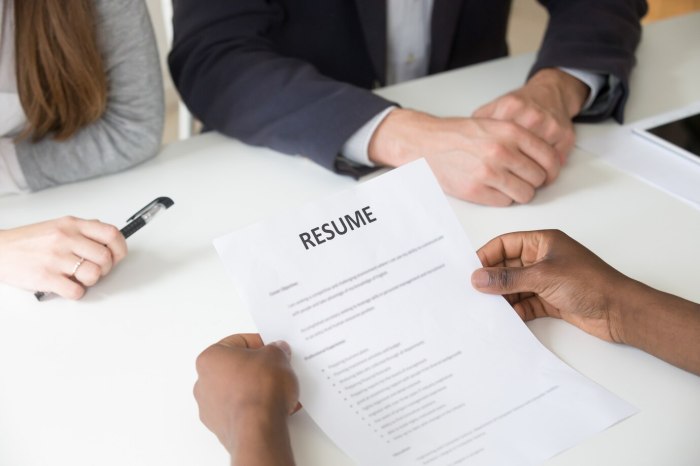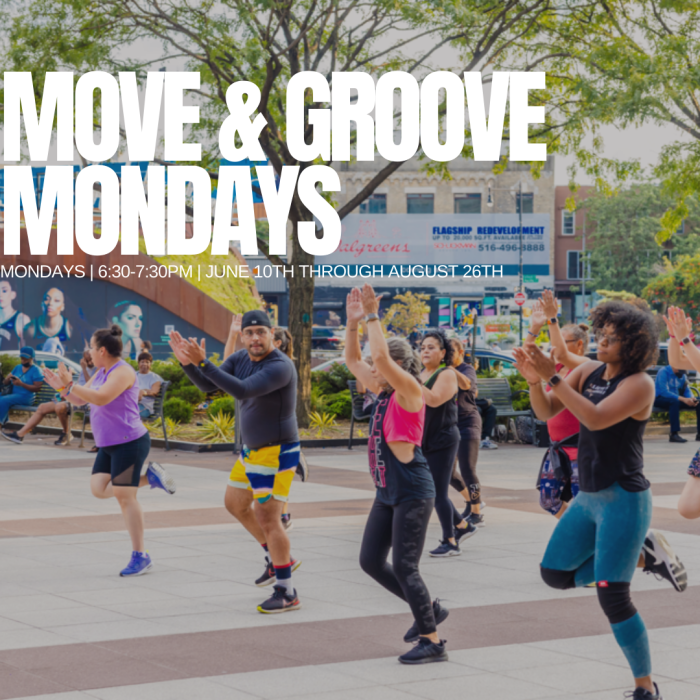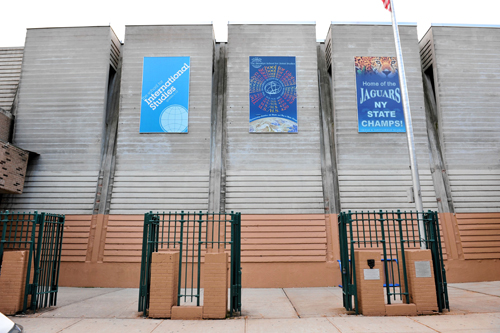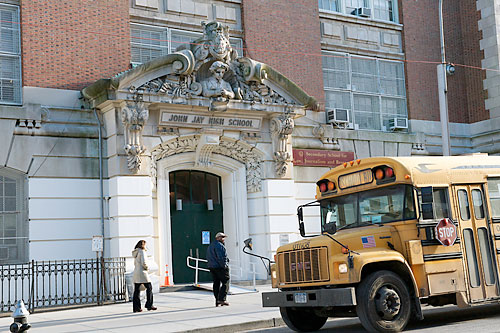For fifth-grade parents and students in New York City’s public schools, September is more than just the start of another run-of-the-mill academic year — it’s time to start preparing for the middle school admissions process as students try to gain entry to their desired schools next fall — based mostly on their performance from fourth grade.
This time-consuming, even stressful, period is probably not the first or last time students will struggle to game out a complicated admissions process to enter their school of choosing — they’ll do the whole thing again when they apply for high school in just a few years, and some may even have fought for a 3-K seat.
But many Brooklynites are strongly against screened admissions, which use test scores, grades, and attendance to determine whether or not a student will be accepted to their chosen school. It has been an issue the borough has been dealing with since a 2014 report revealed public schools in New York state are the most segregated in the country. A 2021 report by THE CITY and The Markup found that the screened admissions process has allowed school segregation it to continue for decades by creating barriers that mean Black and Latino students from being less likely to be accepted into schools compared to white and Asian students.
“Where there is a high number of students who aren’t ranked in the top 15% of their school,” explained David Bloomfield, the Professor of Educational Leadership, Law, and Policy at Brooklyn College. “[They] get a second crack by being in the top 15% citywide. Schools with a lot of higher-scoring students get two bites of the apple rather than one than schools with lower-scoring students, adding to the segregative impact of the policy.”
After a pandemic pause, screened admissions are back
Last year, then-Mayor Bill de Blasio put middle school screenings on hold due to the pandemic, and lottery admissions were used instead. But this year, the screenings are back and will be based on fifth graders’ grades from last year, along with other metrics.
“A screening process doesn’t tell a kid’s ability,” said Crown Heights parent Kelly Bare, whose kids are in ninth and sixth grades. She created a Change.org petition in 2018 for white-identifying parents to call for the end of middle school screenings. “Why are we using exclusionary screens? It doesn’t seem fair or even necessary. When it was time for my oldest to do that, I felt they were unfair and burdensome … and that the system would be better without them.”
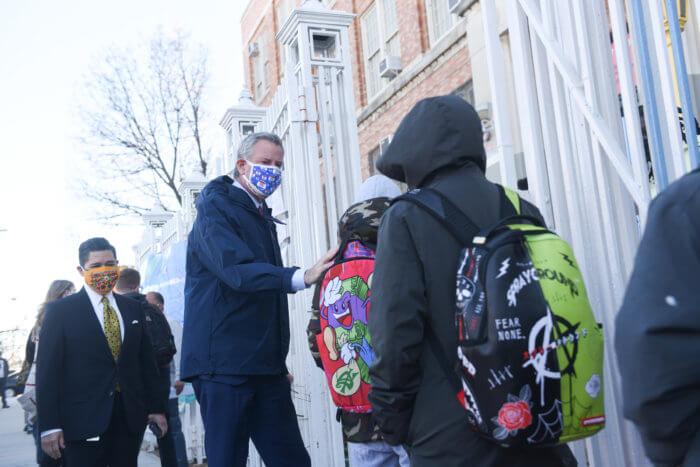
“When all this came up, I was shocked to see this is where we are again,” said Leslie King, who lives in Park Slope, and has kids in sixth and eleventh grades. “I feel like diversity is something we’re trying to cultivate, and so it’s surprising to me that schools are backward when there’s so many businesses and colleges that are looking for diversity, they’re trying to have conversations about why diversity is so important. And why are the schools working against that? It angers me.”
Both mothers are one of the hundreds of New Yorkers who signed a Sept. 16 letter to Department of Education chancellor David C. Banks from NY Appleseed, a social justice center that advocates for integration in public schools. The letter calls for “the permanent elimination of middle school screens citywide” and says the letter’s signatories are “troubled” over the administration’s decision to bring back the screens.
The letter also points out how having the screenings put on hiatus for two years led to more diversity in the city’s middle schools, citing an article by the New York Daily News that found more English Language Learners and low-income students were accepted into elite middle schools than when the screens were being used. Two Brooklyn schools, The Christa McAuliffe School in Bay Ridge and Mark Twain Intermediate School for the Gifted & Talented in Coney Island, saw big increases in their admissions. At the Mark Twain School, offers to low-income students went from 35% in 2020 to 46% in 2021, while Christa McAuliffe saw a jump in English Language Learners from 5% in 2020 to 16% in 2021.
But not everyone supports the elimination of middle school screenings. Yi Fang Chen, a Bay Ridge mother, formerly a member of Community Education Council 20, and a member of Parent Leader for Accelerated Curriculum and Education, said the lottery did a disservice to some students.
“There were kids with grade point averages like 97 and 98, and they didn’t get into the schools they wanted to go to,” she said. “Versus if some sort of objective measure had been used, like pre-COVID, they would’ve gotten into their choice of school. So I feel like it’s really unfortunate, I feel sad for the kids.”
Chen also believes that this would be a good time to measure how well students are doing academically, especially as DOE schools continue to recover from the pandemic. Banks should listen to parents and give them the freedom to choose, she said, because she feels the DOE is depriving parents of the chance to make their voices heard — especially when their taxes help fund schools.
But Jess Byrne, the Borough President appointee for CEC 22, feels that now is not the time for screened admissions. While the 2021-22 school year saw many students return to in-person learning, there was still upheaval with a multitude of teachers and students testing positive for COVID and losing school days.
“If you’re looking at academic performance, last year was a transition year,” said Byrne, who also signed the NY Appleseed letter. “So, why are we going back to look at a year where student performance wasn’t at its best and kids were transitioning back from pandemic learning? I just think overall, we shouldn’t be so achievement-focused at such a young age. It doesn’t benefit students, especially coming out of the pandemic, to have to feel like they have to perform at a certain level in order to achieve something in life.”
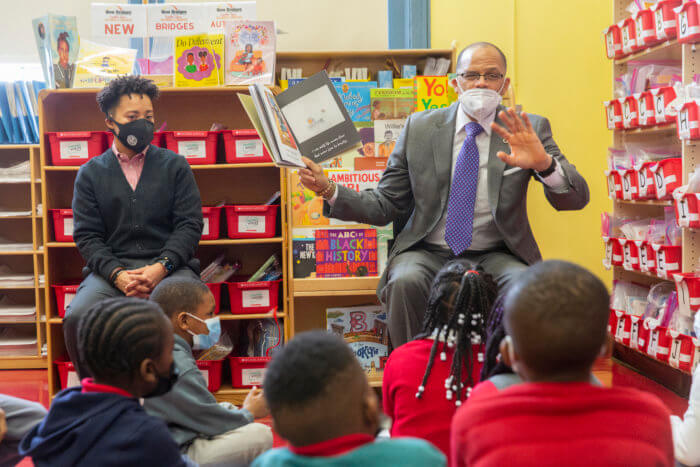
She added that while applying for a middle school last year for one of her kids when the lottery was being used, there was no worry about her child being judged. All that needed to be done is know which middle schools would be the best fit, which Byrne says took a lot of pressure off.
One Sunset Park-based organization, Parent Child Relationship Association, is a strong supporter of screened admissions. Its founder, Nicole Huang, feels those who work hard academically should be rewarded.
“The pandemic may have caused mental stress for students,” she said. “It presented many challenges to students, educators, and parents in the event of virtual learning. However, [the lottery] is not a great idea as it takes students’ potential and opportunity away. Right now, [as] it starts going back to normal, middle school admission should continue without a lottery-based system.”
City plans to ‘engage’ families to determine future of middle school admissions
On September 29th, Chancellor Banks announced superintendents are being tasked with engaging district families, and school and community leaders to “determine how admissions to middle schools will work for this upcoming school year.” said that it will be up to the community to determine if screens should exist.
There are some concerns about whether those engagements would be successful. Right before the pandemic, schools in district 15 adopted reforms to desegregate schools in Cobble Hill, Boerum Hill, Carroll Gardens and Red Hook — with positive results. But, during the pandemic, communication broke down, said Camille Casaretti, president of CEC 15.
“As it was breaking down, people started labeling each other and it had become like if you’re on this side, then you’re against that side,” Casaretti said. “The labels are basically clogging everyone’s perception of what’s happening. We really have to allow space for everyone to explain what they’re feeling, why they think that way, just approach it with grace.”
Frank Marino, one of the founding teachers at M.S 839 in Kensington, also signed the NY Appleseed letter. He believes having communities decide on whether to have screened admissions is a good idea, but is concerned about screenings returning to areas that once eliminated them.
“Notice it is a way for wealthier, louder, well-resourced parents to have their voice be shared maybe louder,” Marino says. “It’s just creating more barriers to our Black and Brown children or students with disabilities to get an education that is on par with students who are white and in general education. So I’m really nervous about the progress we’ve been making towards integrating our school system in New York City being lost in some of the districts where wealthier parents have a greater and more powerful say.”
Bloomfield said screened admissions are “status thing”.
“People just like to be keeping score,” he said. “It’s not an educational need. It’s scorekeeping. It pits one group of students and families against another.”
Engagement with each of Brooklyn’s CECs will start this fall, just as middle school applications open on Oct. 26. Applications are due by Dec. 1, and offers will be sent out on April 1. Between now and next spring, the future of screened admissions is uncertain.
“Addressing diversity and taking away screens is one step,” King says. “There’s a lot that needs to be fixed but this is a good step. I think it’s important to not dial it back; I think it’s important to keep moving forward. Privilege should be open to everyone.”
Update, Oct. 17, 2022, 10:55am: This story previously contained a graphic from a school diversity initiative separate from the screened admissions debate. We regret the error.







